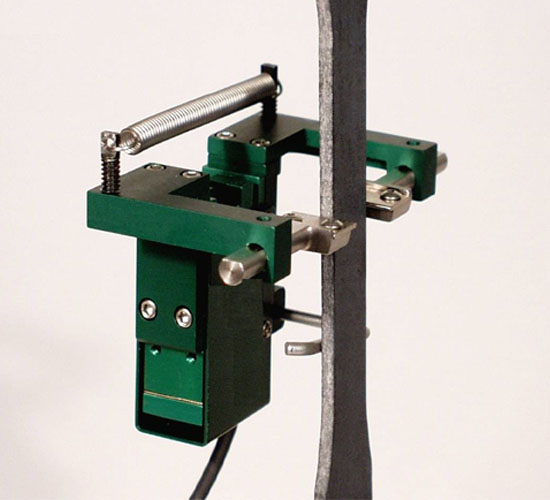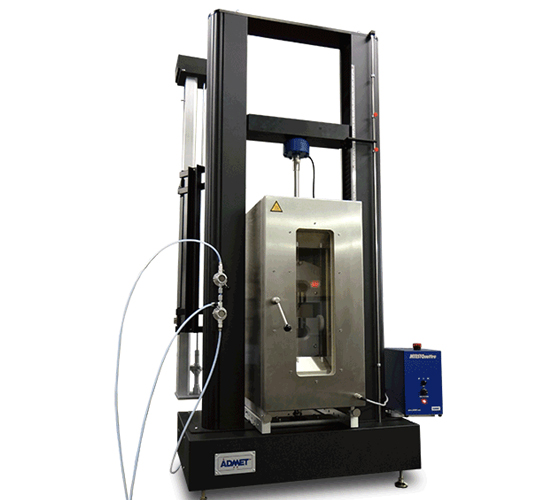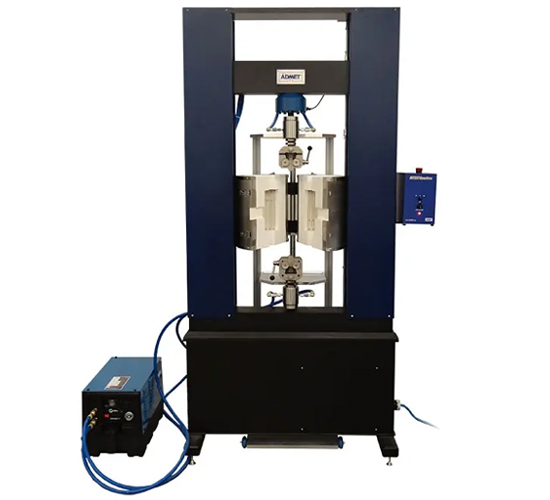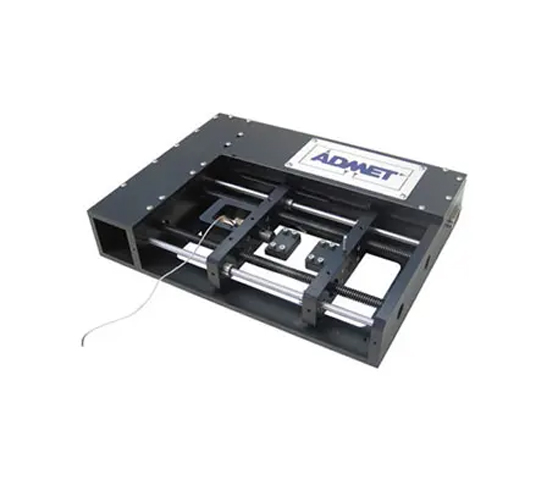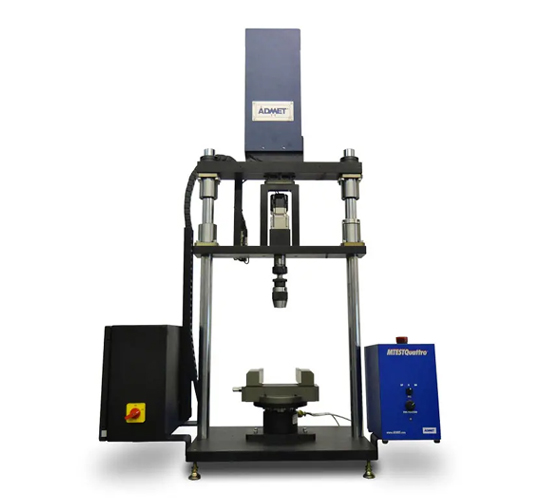Transverse Extensometer Applications
The Transverse Extensometer is a high-precision instrument designed to measure strain in materials during transverse loading conditions, specifically for Universal Testing Machines (UTMs). It is ideal for evaluating transverse strain in materials such as metals, polymers, composites, and ceramics during tensile or compression tests. This extensometer provides accurate measurements of deformation perpendicular to the direction of the applied force, making it critical for assessing the lateral deformation and behavior of materials under load.
Applications for Universal Testing Machines (UTMs):
Tensile Testing of Metals:
The Transverse Extensometer is used in tensile tests of metals like steel, aluminum, and titanium to measure their lateral strain when subjected to pulling forces. It helps in evaluating ductility, elasticity, and the material’s strain hardening behavior under tension.Polymer and Plastic Testing:
Ideal for measuring the transverse strain in polymers and plastics during tensile and compression tests, the extensometer provides insights into the elastic properties and flow behavior of materials used in packaging and automotive applications.Composite Material Testing:
In composite materials like carbon fiber and glass fiber, the extensometer measures transverse strain to evaluate the interlaminar shear strength, which is critical in industries like aerospace and automotive, where materials must withstand complex loading conditions.Concrete and Building Materials Testing:
This extensometer is used in construction materials like concrete and ceramics to measure transverse deformation during compression tests, helping evaluate the material’s structural integrity under load.Textile and Fiber Testing:
In textile and fiber testing, the Transverse Extensometer is used to measure the strain of fabrics and fibers under tension, providing essential data on strength, stretchability, and durability.Rubber and Elastomer Testing:
Used in the evaluation of rubber and elastomeric materials, the extensometer measures how these materials behave under transverse loads. This is essential in applications such as tire manufacturing and sealant production, where lateral deformation is critical for performance.Adhesive Bond Testing:
The extensometer can measure transverse strain in adhesive bonds during lap shear tests or other bond strength tests, helping evaluate the adhesion quality and resistance to shear in industrial bonding applications.Wood and Lumber Testing:
In wood and lumber testing, the Transverse Extensometer measures the transverse strain to determine bending strength and elastic modulus under load, which is important for evaluating the suitability of wood for construction and furniture-making.Biomaterial and Medical Device Testing:
The extensometer is used to evaluate biomaterials and medical devices under transverse loading conditions to assess their performance and integrity in applications like implants, prosthetics, and stents.Geotechnical Material Testing:
The Transverse Extensometer is useful for evaluating the deformation characteristics of soil and rock under transverse loading, especially in foundation engineering and earthquake research, where lateral forces play a crucial role.
Advantages of Transverse Extensometer:
- Precision in Transverse Strain Measurement: Provides highly accurate measurements of strain perpendicular to the direction of the applied force, ensuring reliable test results.
- Versatile Use: Ideal for a wide range of materials including metals, polymers, composites, ceramics, and more, making it a flexible tool for different testing environments.
- Real-Time Data Collection: Provides continuous data during testing, enabling immediate analysis of material behavior.
- Durability: Built to withstand rigorous testing environments, ensuring long-lasting performance even in demanding industrial settings.
- Easy Integration with UTMs: Seamlessly integrates with Universal Testing Machines (UTMs), enhancing testing efficiency and accuracy.
- Comprehensive Material Evaluation: Helps assess transverse deformation, which is essential for determining bending strength, shear properties, and lateral behavior of materials under load.
Industry Applications:
- Aerospace Industry: Used for testing composite materials and metals used in aircraft components and space exploration materials.
- Automotive Industry: Ensures the performance of materials used in vehicle bodies, tires, and engine components under lateral forces.
- Construction and Civil Engineering: Applied in building materials like concrete and steel to evaluate structural integrity under compression and bending.
- Manufacturing Industry: Tests the durability and strength of various materials used in manufacturing processes, including plastics, rubber, and metal components.
- Medical Devices: Used to test the integrity of biomaterials and medical implants under transverse loads to simulate real-life stresses and strains.
- Textile Industry: Measures strain in fabrics and fibers, essential for quality control and design of textile products.
The Transverse Extensometer is an indispensable tool for industries where lateral strain measurements are crucial for evaluating material performance. Whether used in aerospace, automotive, construction, or biomedical applications, this extensometer provides accurate and reliable data that is essential for material testing, product development, and quality assurance.

